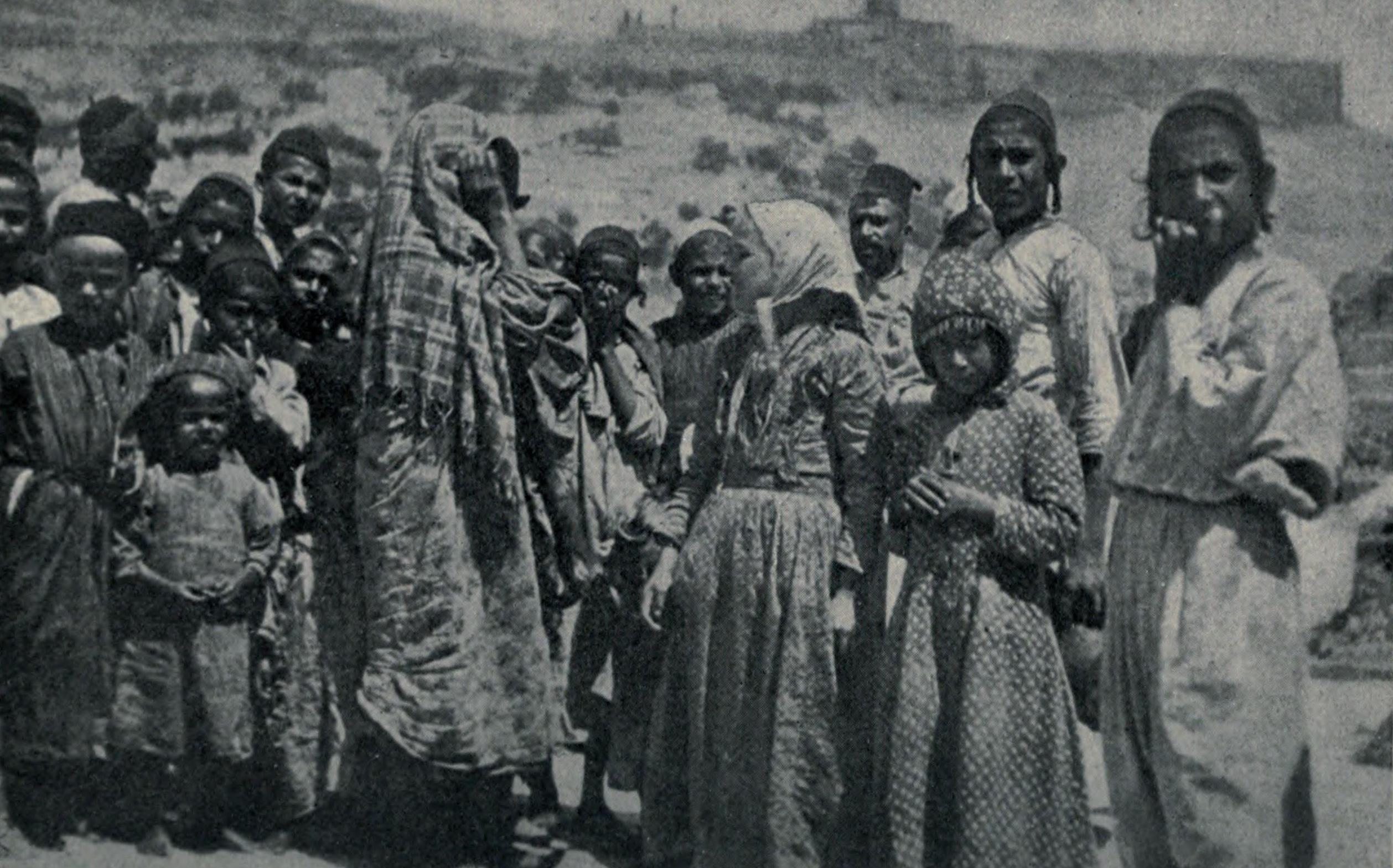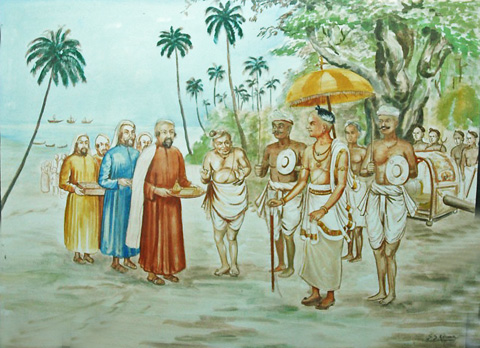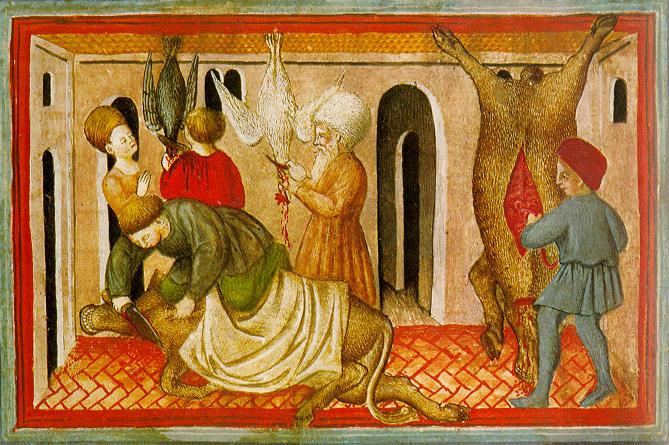|
Mesilat Zion
Mesilat Zion ( he, מְסִלַּת צִיּוֹן, מסילת ציון, ''lit.'' Highway of Zion) is a moshav in central Israel. Located near Beit Shemesh with an area of 1,000 dunams, it falls under the jurisdiction of Mateh Yehuda Regional Council. In it had a population of . History The moshav was established on the land of the depopulated Palestinian village of Bayt Mahsir in 1950. The moshav was established as a work village in 1950 by immigrants from Yemen. After a few years the founders left and were replaced by Cochin Jews. The name of the village is symbolic, as it is located near the Burma Road. It symbolizes the breaking of the siege over Jerusalem during the 1948 Arab–Israeli War, it is based on verses from the Book of Isaiah, chapter 62, "For Zion's sake will I not hold my peace, and for Jerusalem's sake I will not rest....Go through, go through the gates; prepare ye the way of the people; cast up, cast up the highway; gather out the stones; lift up a standard ... [...More Info...] [...Related Items...] OR: [Wikipedia] [Google] [Baidu] |
Yemenite Jews
Yemenite Jews or Yemeni Jews or Teimanim (from ''Yehudei Teman''; ar, اليهود اليمنيون) are those Jews Jews ( he, יְהוּדִים, , ) or Jewish people are an ethnoreligious group and nation originating from the Israelites Israelite origins and kingdom: "The first act in the long drama of Jewish history is the age of the Israelites""The ... who live, or once lived, in Yemen, and their descendants maintaining their customs. Between June 1949 and September 1950, the overwhelming majority of Yemen's Jewish population Aliyah, immigrated to Israel in Operation Magic Carpet (Yemen), Operation Magic Carpet. After several waves of persecution throughout Yemen, the vast majority of Yemenite Jews in Israel, Yemenite Jews now live in Israel, while smaller communities live in the United States and elsewhere. Only a handful remain in Yemen. The few remaining Jews experience intense, and at times violent, Antisemitism, anti-Semitism on a daily basis. Yemenite Je ... [...More Info...] [...Related Items...] OR: [Wikipedia] [Google] [Baidu] |
Cochin Jews
Cochin Jews (also known as Malabar Jews or Kochinim, from ) are the oldest group of Jews in India, with roots that are claimed to date back to the time of King Solomon. The Cochin Jews settled in the Kingdom of Cochin in South India, now part of the state of Kerala. As early as the 12th century, mention is made of the Jews in southern India by Benjamin of Tudela. They are known to have developed Judeo-Malayalam, a dialect of Malayalam language. Following their expulsion from Iberia in 1492 by the Alhambra Decree, a few families of Sephardi Jews eventually made their way to Cochin in the 16th century. They became known as Paradesi Jews (or Foreign Jews). The European Jews maintained some trade connections to Europe, and their language skills were useful. Although the Sephardim spoke Ladino (i.e. Spanish or Judeo-Spanish), in India they learned Judeo-Malayalam from the Malabar Jews.Katz 2000; Koder 1973; Thomas Puthiakunnel 1973. The two communities retained their ethnic an ... [...More Info...] [...Related Items...] OR: [Wikipedia] [Google] [Baidu] |
Populated Places In Jerusalem District
Population typically refers to the number of people in a single area, whether it be a city or town, region, country, continent, or the world. Governments typically quantify the size of the resident population within their jurisdiction using a census, a process of collecting, analysing, compiling, and publishing data regarding a population. Perspectives of various disciplines Social sciences In sociology and population geography, population refers to a group of human beings with some predefined criterion in common, such as location, race, ethnicity, nationality, or religion. Demography is a social science which entails the statistical study of populations. Ecology In ecology, a population is a group of organisms of the same species who inhabit the same particular geographical area and are capable of interbreeding. The area of a sexual population is the area where inter-breeding is possible between any pair within the area and more probable than cross-breeding with ... [...More Info...] [...Related Items...] OR: [Wikipedia] [Google] [Baidu] |
Populated Places Established In 1950
Population typically refers to the number of people in a single area, whether it be a city or town, region, country, continent, or the world. Governments typically quantify the size of the resident population within their jurisdiction using a census, a process of collecting, analysing, compiling, and publishing data regarding a population. Perspectives of various disciplines Social sciences In sociology and population geography, population refers to a group of human beings with some predefined criterion in common, such as location, race, ethnicity, nationality, or religion. Demography is a social science which entails the statistical study of populations. Ecology In ecology, a population is a group of organisms of the same species who inhabit the same particular geographical area and are capable of interbreeding. The area of a sexual population is the area where inter-breeding is possible between any pair within the area and more probable than cross-breeding with i ... [...More Info...] [...Related Items...] OR: [Wikipedia] [Google] [Baidu] |
Moshavim
A moshav ( he, מוֹשָׁב, plural ', lit. ''settlement, village'') is a type of Israeli town or settlement, in particular a type of cooperative agricultural community of individual farms pioneered by the Labour Zionists between 1904 and 1914, during what is known as the second wave of ''aliyah''. A resident or a member of a moshav can be called a "moshavnik" (). The moshavim are similar to kibbutzim with an emphasis on community labour. They were designed as part of the Zionist state-building programme following the green revolution Yishuv ("settlement") in the British Mandate of Palestine during the early 20th century, but in contrast to the collective farming kibbutzim, farms in a moshav tended to be individually owned but of fixed and equal size. Workers produced crops and other goods on their properties through individual or pooled labour with the profit and foodstuffs going to provide for themselves. Moshavim are governed by an elected council ( he, ועד, ''v ... [...More Info...] [...Related Items...] OR: [Wikipedia] [Google] [Baidu] |
Maya Eshet
Maya Eshet ( he, מאיה עשת; born ) is an Israeli actress, known for ''Shiur Moledet: Avdei Hashem'' (2003), ''Teen Wolf'' (2011), and ''To The Bone'' (2017). Early life Eshet was born in Jerusalem, Israel, to a family of Ashkenazi Jewish descent. Her mother Ilva ( Gurevich) immigrated to Israel from Sweden. Her father is Arik Eshet, and both her parents are voice actors and acting coaches. She has two younger sisters, one of whom is Israeli actress Mili Eshet. She grew up in moshav A moshav ( he, מוֹשָׁב, plural ', lit. ''settlement, village'') is a type of Israeli town or settlement, in particular a type of cooperative agricultural community of individual farms pioneered by the Labour Zionists between 1904 ... Mesilat Zion, Israel. Personal life She is married to American actor Konstantin Melikhov, whom she met during her acting studies in New York. Filmography Film Television Web Stage Music videos References External links * * Maya ... [...More Info...] [...Related Items...] OR: [Wikipedia] [Google] [Baidu] |
Yuval Noah Harari
Yuval Noah Harari ( he, יובל נח הררי ; born 1976) is an Israeli historian and professor in the Department of History at the Hebrew University of Jerusalem. He is the author of the popular science bestsellers '' Sapiens: A Brief History of Humankind'' (2014), '' Homo Deus: A Brief History of Tomorrow'' (2016), and '' 21 Lessons for the 21st Century'' (2018). His writings examine free will, consciousness, intelligence, happiness, and suffering. Harari writes about the "cognitive revolution" occurring roughly 70,000 years ago when ''Homo sapiens'' supplanted the rival Neanderthals and other species of the genus ''Homo'', developed language skills and structured societies, and ascended as apex predators, aided by the agricultural revolution and accelerated by the scientific revolution, which have allowed humans to approach near mastery over their environment. His books also examine the possible consequences of a futuristic biotechnological world in which intelligent biolo ... [...More Info...] [...Related Items...] OR: [Wikipedia] [Google] [Baidu] |
The Jerusalem Post
''The Jerusalem Post'' is a broadsheet newspaper based in Jerusalem, founded in 1932 during the British Mandate of Palestine by Gershon Agron as ''The Palestine Post''. In 1950, it changed its name to ''The Jerusalem Post''. In 2004, the paper was bought by Mirkaei Tikshoret, a diversified Israeli media firm controlled by investor Eli Azur. In April 2014, Azur acquired the newspaper ''Maariv''. The newspaper is published in English and previously also printed a French edition. Originally a left-wing newspaper, it underwent a noticeable shift to the political right in the late 1980s. From 2004 editor David Horovitz moved the paper to the center, and his successor in 2011, Steve Linde, pledged to provide balanced coverage of the news along with views from across the political spectrum. In April 2016, Linde stepped down as editor-in-chief and was replaced by Yaakov Katz, a former military reporter for the paper who previously served as an adviser to former Prime Minister Naftal ... [...More Info...] [...Related Items...] OR: [Wikipedia] [Google] [Baidu] |
Glatt Kosher
In Judaism, ''shechita'' (anglicized: ; he, ; ; also transliterated ''shehitah, shechitah, shehita'') is slaughtering of certain mammals and birds for food according to ''kashrut''. Sources states that sheep and cattle should be slaughtered "as I have instructed you", but nowhere in the Torah are any of the practices of ''shechita'' described. Instead, they have been handed down in Rabbinic Judaism's Oral Torah, and codified in ''halakha''. Species The animal must be of a permitted species. For mammals, this is restricted to ruminants which have split hooves. For birds, although biblically any species of bird not specifically excluded in would be permitted, doubts as to the identity and scope of the species on the biblical list led to rabbinical law permitting only birds with a tradition of being permissible. Fish do not require kosher slaughter to be considered kosher, but are subject to other laws found in which determine whether or not they are kosher (having both ... [...More Info...] [...Related Items...] OR: [Wikipedia] [Google] [Baidu] |
Jerusalem Culinary Institute
Jerusalem (; he, יְרוּשָׁלַיִם ; ar, القُدس ) (combining the Biblical and common usage Arabic names); grc, Ἱερουσαλήμ/Ἰεροσόλυμα, Hierousalḗm/Hierosóluma; hy, Երուսաղեմ, Erusałēm. is a city in Western Asia. Situated on a plateau in the Judaean Mountains between the Mediterranean and the Dead Sea, it is one of the oldest cities in the world and is considered to be a holy city for the three major Abrahamic religions: Judaism, Christianity, and Islam. Both Israelis and Palestinians claim Jerusalem as their capital, as Israel maintains its primary governmental institutions there and the State of Palestine ultimately foresees it as its seat of power. Because of this dispute, neither claim is widely recognized internationally. Throughout its long history, Jerusalem has been destroyed at least twice, besieged 23 times, captured and recaptured 44 times, and attacked 52 times. According to Eric H. Cline's tally in Jerusa ... [...More Info...] [...Related Items...] OR: [Wikipedia] [Google] [Baidu] |
Book Of Isaiah
The Book of Isaiah ( he, ספר ישעיהו, ) is the first of the Latter Prophets in the Hebrew Bible and the first of the Major Prophets in the Christian Old Testament. It is identified by a superscription as the words of the 8th-century BCE prophet Isaiah ben Amoz, but there is extensive evidence that much of it was composed during the Babylonian captivity and later. Johann Christoph Döderlein suggested in 1775 that the book contained the works of two prophets separated by more than a century, and Bernhard Duhm originated the view, held as a consensus through most of the 20th century, that the book comprises three separate collections of oracles: Proto-Isaiah ( chapters 1– 39), containing the words of the 8th-century BCE prophet Isaiah; Deutero-Isaiah ( chapters 40– 55), the work of an anonymous 6th-century BCE author writing during the Exile; and Trito-Isaiah ( chapters 56– 66), composed after the return from Exile. Isaiah 1– 33 promises judgment and restoration ... [...More Info...] [...Related Items...] OR: [Wikipedia] [Google] [Baidu] |









